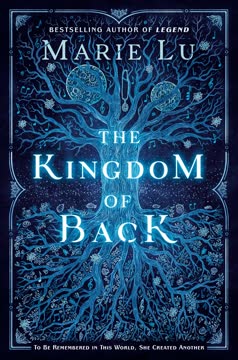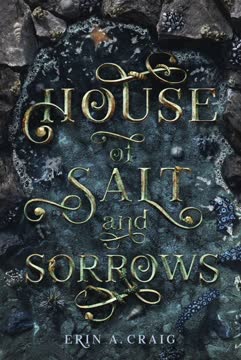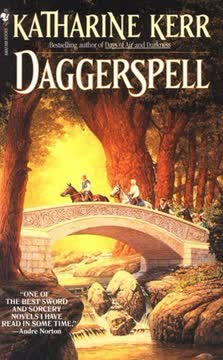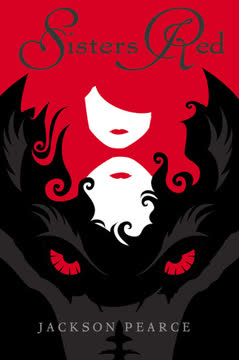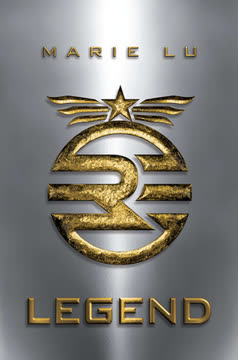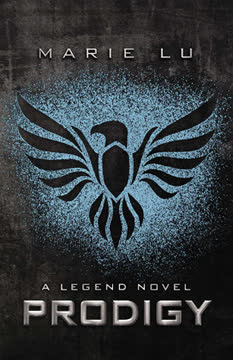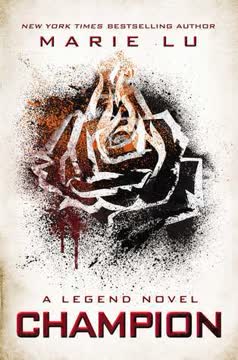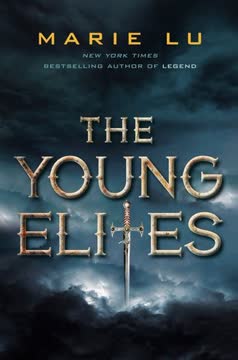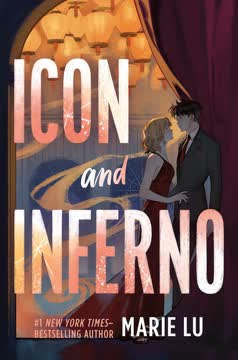Plot Summary
The Forgotten Prodigy
In the shadow of her younger brother Wolfgang, Maria Anna "Nannerl" Mozart is a prodigy whose talent is both celebrated and constrained by her era's expectations for women. Her father, Leopold, is proud but pragmatic, focusing on the family's fortunes and Wolfgang's rising star. Nannerl's music is exquisite, but her performances are always tinged with the knowledge that her time is limited—soon, she will be expected to marry and fade from the stage. The ache of being overlooked, of knowing her compositions may never be heard, haunts her. Yet, her love for music and her brother is fierce, and she yearns for immortality through her art, even as the world seems determined to forget her.
Wishes in the Dark
One night, Nannerl confides her deepest fear to her mother: the terror of being forgotten. She wishes, with all her heart, to be remembered, to have her music live on. This wish, whispered into the darkness, is heard—not by God, but by something else. That night, she dreams of a magical kingdom, a place of upside-down trees and twin moons, and a mysterious boy who promises he can help her if she helps him. The dream lingers, blurring the line between fantasy and reality, and Nannerl senses that her wish has set something in motion, both wondrous and dangerous.
The Boy of Dreams
The boy from Nannerl's dreams, Hyacinth, begins to appear in her waking life, always at the edge of reality. He is beautiful, wild, and otherworldly, offering her glimpses of the Kingdom of Back—a magical mirror world where her music has power. Hyacinth knows her secret wish and tempts her with the promise of being remembered, but at a price. He asks for her help to reclaim his lost throne, and in return, he will grant her heart's desire. Nannerl is both enchanted and unsettled, drawn into a bargain that will test her loyalty, ambition, and love for her brother.
Secrets and Shadows
As Wolfgang's genius blossoms, Nannerl's own gifts are increasingly overshadowed. Their father's ambitions for Wolfgang grow, and Nannerl feels the sting of being left behind. Yet, the siblings share a secret world of stories and music, inventing the Kingdom of Back together. But envy creeps in—Wolfgang's talent is effortless, his future limitless, while Nannerl's path narrows. The magical kingdom becomes both a refuge and a battleground for their hopes and fears, and the shadows of jealousy threaten to poison their bond.
The Kingdom Revealed
Nannerl and Wolfgang are drawn fully into the Kingdom of Back, where the rules of reality are inverted and their imaginations shape the world. Guided by Hyacinth, they encounter wonders and dangers: forests of upside-down trees, faery lights, and enchanted music. The kingdom is beautiful but perilous, reflecting their desires and anxieties. Here, Nannerl's music is powerful, her voice heard, but the cost of magic becomes clearer. Hyacinth's requests grow more urgent, and the siblings must navigate the thin line between fantasy and the harshness of their real lives.
Rivalry and Reverie
As the Mozarts tour Europe, Nannerl's performances are increasingly eclipsed by Wolfgang's prodigious abilities. Their father's pride in Wolfgang is palpable, and Nannerl's longing for recognition intensifies. She begins to compose in secret, pouring her soul into music that no one may ever hear. The Kingdom of Back becomes a place where her ambitions are unleashed, but also where her envy and guilt fester. The siblings' relationship is tested by competition, affection, and the growing influence of Hyacinth, who manipulates their dreams and desires.
The Princeling's Bargain
Hyacinth reveals his true need: he is the exiled princeling of the Kingdom of Back, and only with Nannerl's help can he reclaim his throne. In exchange, he promises to make her immortal through her music. The bargain is sealed with a series of magical tasks—each more perilous than the last. Nannerl is torn between her yearning for greatness and her fear of what she is unleashing. The cost of the pact becomes personal as Wolfgang's health falters, and Nannerl begins to suspect that Hyacinth's magic is not as benevolent as it seems.
The Night Flower Quest
Hyacinth sends Nannerl and Wolfgang on a quest to retrieve a night flower from a witch's underwater grotto. The journey is fraught with danger and temptation, as the witch—Queen of the Night—tries to lure them with promises and music. Nannerl's compassion wars with her sense of duty, and Wolfgang's innocence is threatened. They succeed, but not without cost: Wolfgang is pricked by the flower's thorns, linking him to the kingdom's magic and to Hyacinth's designs. The siblings return changed, their bond strained by secrets and the shadow of the bargain.
Illness and Envy
Wolfgang falls gravely ill, his life hanging by a thread. Nannerl is wracked with guilt, fearing that her pact with Hyacinth has cursed her brother. As she nurses him, she is forced to confront the consequences of her ambition and the depth of her love for Wolfgang. The real and magical worlds blur—Wolfgang's fevered dreams are haunted by the kingdom, and Nannerl's music becomes a lifeline. The experience deepens their connection but also leaves scars, as Nannerl realizes the true danger of her wish.
The Ogre's Sword
Hyacinth's next task sends Nannerl to steal a magical sword from a fearsome ogre. The ogre, however, is not a monster but a tragic figure, dreaming of lost love and redemption. Nannerl's compassion is tested as she must deceive and outwit him to fulfill her bargain. The sword is won, but at the cost of another's suffering. Nannerl begins to question the morality of her quest and the true nature of Hyacinth's kingdom. The lines between heroism and betrayal blur, and Nannerl's sense of self is shaken.
The Arrow and the Tower
The last of Hyacinth's tasks is the most dangerous: Nannerl must retrieve a golden arrow and use it to breach the castle at the heart of the kingdom. She faces spectral guardians and the haunting presence of a princess locked in a tower—a reflection of her own fears of confinement and erasure. In a moment of horror, Nannerl realizes that Hyacinth is not the rightful ruler but the usurper, and that she has been complicit in his plan to destroy the true royal family. The cost of her wish is revealed: the loss of innocence, the betrayal of trust, and the endangerment of her brother's soul.
The Queen's Prison
Wracked with guilt, Nannerl seeks out the true Queen of the Night, imprisoned and forgotten. She learns the history of the kingdom's fall and the lies Hyacinth has spun. The queen, once a figure of terror, is revealed as a victim and a source of hope. Nannerl resolves to set things right, even if it means sacrificing her own dreams. She frees the queen, unleashing a power that can challenge Hyacinth and restore balance to the kingdom. The act is both a rebellion against her own ambition and a redemption for her complicity.
Betrayal and Loss
In the aftermath of her rebellion, Nannerl pays a heavy price. Her secret compositions are stolen and published under Wolfgang's name, her own legacy erased. The pain of betrayal—by her father, by Hyacinth, and by her own choices—threatens to consume her. Yet, in her darkest hour, she finds unexpected solace in Wolfgang's love and admiration. The siblings reconcile, recognizing that their bond is deeper than rivalry or ambition. Nannerl's wish for immortality is transformed: she realizes that to be remembered by those she loves is a legacy in itself.
The Devil's Dance
Hyacinth, enraged by Nannerl's defiance, seeks revenge. He tempts her one last time: deliver Wolfgang to the kingdom, and she will have her wish. The choice is agonizing—sacrifice her brother for her own glory, or let go of her dreams for his sake. In a climactic confrontation, Nannerl chooses love over ambition, refusing to betray Wolfgang. The kingdom erupts in chaos as the true queen returns, and Hyacinth is consumed by the very magic he sought to control. The spell is broken, but the scars remain.
The Choice of Sacrifice
Nannerl's decision to save her brother comes at a cost: she must relinquish her claim to greatness, accept her place in the shadows, and let Wolfgang shine. The siblings part ways as adulthood approaches—Wolfgang to fame and immortality, Nannerl to marriage and obscurity. Yet, their love endures, and Nannerl finds peace in knowing that her music lives on in her brother's heart and hands. The Kingdom of Back fades, but its lessons linger: the power of sacrifice, the danger of unchecked ambition, and the enduring strength of love.
The Return of the Queen
With Hyacinth defeated and the queen restored, the Kingdom of Back is healed. The magical world, once a place of longing and danger, becomes a memory—a symbol of childhood, creativity, and the bittersweet passage of time. Nannerl and Wolfgang are changed by their journey, their bond deepened by trials and forgiveness. The kingdom's restoration mirrors Nannerl's own acceptance of her fate: she may not be remembered by history, but she is immortalized in the love of her family and the music she inspired.
The End of Childhood
As Nannerl comes of age, her time as a performer ends. She watches Wolfgang depart for new adventures, their paths diverging as adulthood claims them. The Kingdom of Back recedes into memory, a secret world they once shared. Nannerl marries, becomes a mother, and finds contentment in the quiet joys of life. The pain of lost dreams lingers, but so does the beauty of what was shared. The story of the other Mozart, the girl who composed in the shadows, becomes a ghost in the air—a melody half-remembered, but never truly lost.
Legacy and Remembrance
Decades later, Nannerl reflects on her life, her brother's fame, and her own forgotten genius. She tells her daughter the story of the Kingdom of Back, passing on the legacy of imagination, resilience, and love. Though history may have overlooked her, Nannerl's music endures in the hearts of those who knew her, and in the echoes of her brother's compositions. The lesson of her life is clear: even in the shadows, a quiet flame can burn bright, and the stories of the forgotten deserve to be heard.
Characters
Maria Anna "Nannerl" Mozart
Nannerl is the heart of the story—a gifted musician and composer whose brilliance is stifled by the gendered expectations of 18th-century Europe. She is fiercely intelligent, imaginative, and ambitious, but also deeply vulnerable to the pain of being overlooked. Her relationship with her brother Wolfgang is complex: she is his mentor, rival, and confidante, loving him even as she envies his freedom. Nannerl's psychological journey is one of longing—for recognition, for love, for a legacy that will outlast her. Her pact with Hyacinth is both a rebellion against her fate and a desperate grasp at agency. Over time, she learns that true immortality lies not in fame, but in the love and memory of those closest to her.
Wolfgang Amadeus "Woferl" Mozart
Wolfgang is a musical genius whose talent is both a blessing and a burden. As a child, he idolizes Nannerl, learning from her and sharing a secret world of stories and music. As he grows, his gifts eclipse hers, and he becomes the focus of their father's ambitions. Wolfgang is sensitive, loving, and sometimes oblivious to the pain his success causes Nannerl. His illnesses and vulnerability make him both a source of anxiety and affection. Psychologically, Wolfgang is torn between his love for his sister and the pressures of expectation. His development is marked by a growing awareness of Nannerl's sacrifices and a deep, if sometimes unspoken, gratitude for her influence.
Leopold Mozart
Leopold is a complex figure—devoted to his children's success, but also a product of his time, prioritizing Wolfgang's career and viewing Nannerl's talent as a means to an end. He is stern, pragmatic, and sometimes blind to the emotional needs of his children. Leopold's love is real but conditional, and his actions often wound Nannerl deeply. Psychologically, he is driven by insecurity and a desire for legacy, projecting his ambitions onto his children. His relationship with Nannerl is fraught with unspoken regret and missed opportunities for understanding.
Anna Maria Mozart (Mama)
Anna Maria is a stabilizing presence in the Mozart family, offering warmth and understanding to her children. She recognizes Nannerl's pain and tries to comfort her, but is also constrained by her own experiences and the limitations of her role. She is a survivor, having lost many children, and her love is both fierce and quiet. Psychologically, she embodies resilience and acceptance, encouraging Nannerl to find peace in small joys and to cherish the bonds of family.
Hyacinth
Hyacinth is the enigmatic boy from the Kingdom of Back, at once alluring and dangerous. He represents the seductive power of unchecked desire—the promise of greatness at a terrible cost. Hyacinth is both a victim and a manipulator, seeking to reclaim his throne but willing to use Nannerl and Wolfgang to achieve his ends. Psychologically, he is a mirror for Nannerl's own ambition and envy, tempting her to betray her values. His development traces the arc from charming ally to monstrous adversary, ultimately serving as a catalyst for Nannerl's self-realization.
The Queen of the Night
Initially a figure of fear, the Queen of the Night is revealed as the true ruler of the Kingdom of Back, betrayed and forgotten. She is a tragic figure, embodying the pain of erasure and the longing for restoration. Her relationship with Nannerl is one of mutual recognition—both are women whose voices have been silenced. Psychologically, the queen represents the possibility of redemption and the importance of reclaiming one's story.
Herr Schachtner
Herr Schachtner is a minor but significant character, serving as a witness to the Mozarts' early years and a link to the world outside the family. He is supportive, kind, and occasionally a source of validation for Nannerl. Psychologically, he represents the possibility of being seen and remembered, even if only by a few.
Johann
Johann is a young man Nannerl meets during her travels, offering her a glimpse of a life beyond music and family duty. He is gentle, artistic, and understanding, representing the road not taken. Psychologically, Johann embodies the hope of love and recognition outside the confines of family and society.
The Ogre/King's Champion
The ogre, initially feared, is revealed as the king's champion—a figure of loss and longing. He is a symbol of the ways in which appearances deceive and the cost of misjudgment. Psychologically, he represents the pain of being misunderstood and the importance of compassion.
The Faeries
The faeries of the Kingdom of Back are both playful and menacing, embodying the capriciousness of magic and the dangers of wish fulfillment. They serve as a chorus, echoing the desires and fears of the main characters, and are a constant reminder of the thin line between fantasy and reality.
Plot Devices
Dual Worlds and Mirror Imagery
The narrative is structured around the interplay between the real world and the Kingdom of Back—a fantastical mirror realm where the rules of reality are inverted. This duality allows for a rich exploration of Nannerl's inner life, her ambitions, and her anxieties. The mirror imagery is used to highlight the contrast between what is and what could be, and to foreshadow the consequences of wish fulfillment. The Kingdom of Back serves as both a refuge and a crucible, forcing the characters to confront their deepest truths.
The Bargain and the Three Tasks
Nannerl's bargain with Hyacinth is the central plot device, structured around a series of magical tasks that test her courage, morality, and loyalty. Each task is a metaphor for a psychological trial—facing temptation, confronting guilt, and choosing between ambition and love. The tasks escalate in danger and complexity, culminating in a final choice that defines Nannerl's character. The structure echoes traditional faery tales, but with a modern twist: the true victory is not in winning power, but in letting go.
Foreshadowing and Symbolism
The novel is rich in foreshadowing, with recurring symbols—music, edelweiss flowers, night, and mirrors—signaling shifts in the narrative and the characters' inner journeys. Dreams blur into reality, and magical events often presage real-world consequences. The use of music as both a literal and metaphorical force is central: it is the means by which Nannerl expresses herself, connects with her brother, and navigates the magical world. The symbols serve to deepen the emotional resonance and to connect the personal with the universal.
Narrative Structure and Perspective
The novel is framed as Nannerl's own account, a reclamation of her story from the margins of history. The use of first-person perspective allows for an intimate exploration of her thoughts and feelings, while the interweaving of real historical events and magical elements creates a sense of both authenticity and wonder. The structure is cyclical, beginning and ending with the act of storytelling, emphasizing the importance of memory and the power of narrative to shape legacy.
Analysis
The Kingdom of Back is a haunting, lyrical reimagining of the life of Nannerl Mozart, blending historical fiction with faery-tale fantasy to explore the costs of genius, the pain of erasure, and the redemptive power of love. At its core, the novel is a feminist critique of the ways in which women's talents have been silenced by history, and a celebration of the quiet resilience required to create in the shadows. Through the device of the magical kingdom, Marie Lu externalizes Nannerl's psychological struggles—her envy, her longing, her guilt—and dramatizes the choices that define her. The story warns of the dangers of unchecked ambition and the seductive allure of shortcuts to greatness, but it also affirms the value of sacrifice, compassion, and the bonds of family. In the end, Nannerl's legacy is not in the fame she is denied, but in the love she gives and the inspiration she provides. The novel invites readers to reconsider whose stories are told, whose names are remembered, and to find meaning in the act of creation itself, even when the world refuses to listen.
Last updated:
Review Summary
The Kingdom of Back is a historical fantasy novel about Mozart's sister Nannerl. Readers appreciate the lyrical writing, sibling relationship, and exploration of gender inequality in 18th century Europe. Many found the magical elements intriguing, though some felt they detracted from the historical aspects. The book's pacing was slow for some, but others enjoyed the quiet, character-driven narrative. Overall, reviewers praised Lu's departure from her usual style and her ability to shed light on a forgotten historical figure, though opinions varied on the execution.
Similar Books
Download PDF
Download EPUB
.epub digital book format is ideal for reading ebooks on phones, tablets, and e-readers.
